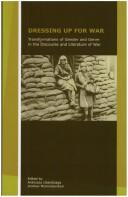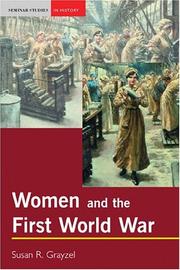| Listing 1 - 10 of 10 |
Sort by
|
Book
ISBN: 0755619013 1838605797 0857723170 9780857723178 1780763476 9781780763477 9781306187589 1306187583 9780755619016 9780857734617 085773461X 9781838605797 9781780763477 9781838605797 Year: 2014 Publisher: London ; New York : New York : I.B. Tauris ; Distributed in the United States and Canada exclusively by Palgrave Macmillan,
Abstract | Keywords | Export | Availability | Bookmark
 Loading...
Loading...Choose an application
- Reference Manager
- EndNote
- RefWorks (Direct export to RefWorks)
"The 1994 genocide in Rwanda, which followed the death of President Habyarimana, was one of the worst humanitarian disasters of the twentieth century and shamed both African and global leaderships. As wars in the Congo continue to tear apart the region, this book examines how the politics that led to the 1994 genocide continue to be played out in the international media. Scholars of political science contend that narratives are used strategically by states to influence and shape the behaviour of other actors in the international system. This book explore how, through processes of denial and revisionism, strong states with geopolitical interests in the Great Lakes region of Africa, African states directly involved in conflict, militia groups and rebels, as well as human rights activists and NGOs, all employ media narratives strategically with the aim of influencing political decision-making and public perceptions of genocide and war.Examining how international political discourse on the 1994 genocide in Rwanda is gendered, Georgina Holmes argues that states, militaries and human rights organisations use gendered narratives for political gain, and breaks new ground in analysing the role of gender in the conflict. This book is essential reading on the gendered dynamics of conflict and genocide in Rwanda and the Democratic Republic of Congo and will appeal to anyone with an interest in Gender Studies, Political Communication, Media and Film Studies, African Studies, Genocide Studies and International Relations."--Bloomsbury publishing.
Genocide --- Women in war. --- Social aspects. --- Rwanda --- History --- Women.

ISBN: 9789004489820 9789042013674 Year: 2001 Publisher: Leiden;Boston BRILL
Abstract | Keywords | Export | Availability | Bookmark
 Loading...
Loading...Choose an application
- Reference Manager
- EndNote
- RefWorks (Direct export to RefWorks)
Book
ISBN: 1611479541 9781611479546 9781611479539 Year: 2016 Publisher: Madison, [Wisconsin] ; Teaneck, [New Jersey] : Fairleigh Dickinson University Press,
Abstract | Keywords | Export | Availability | Bookmark
 Loading...
Loading...Choose an application
- Reference Manager
- EndNote
- RefWorks (Direct export to RefWorks)
"Italian Women at War explores Italian women's participation in war and conflict throughout Italy's modern history, beginning with the Unification and ending with the twentieth century. The essays in this volume, which focus on both historical and fictional figures, help to further the discussion on women's participation in violence, warfare (both conventional and unconventional), and political protest throughout Italy"--Provided by publisher.
Women in war --- Women and war --- Women soldiers --- History. --- Italy --- History, Military. --- Social conditions. --- History
Book
ISBN: 0719098823 1781708673 0719098831 9780719098833 9781781708675 9780719091070 0719091071 Year: 2015 Publisher: Manchester : Baltimore, Md. : Manchester University Press, Project MUSE,
Abstract | Keywords | Export | Availability | Bookmark
 Loading...
Loading...Choose an application
- Reference Manager
- EndNote
- RefWorks (Direct export to RefWorks)
Between 1954 and 1962, Algerian women played a major role in the struggle to end French rule in one of the most violent wars of decolonisation of the 20th century. This book presents an in-depth exploration of what happened to these women after independence in 1962.
Women in war --- History --- 1900 - 1999 --- Algeria. --- Algeria --- Decolonisation. --- Gender. --- Memory. --- Nation-building. --- Nationalism. --- Oral History. --- State-building. --- Veterans.
Book
ISBN: 0815637101 9780815655169 0815655169 9780815637028 0815637020 9780815637103 Year: 2021 Publisher: Syracuse, New York Syracuse University Press
Abstract | Keywords | Export | Availability | Bookmark
 Loading...
Loading...Choose an application
- Reference Manager
- EndNote
- RefWorks (Direct export to RefWorks)
"Hundreds of thousands of Iranian women participated in the Iran-Iraq War (1980-88), yet their significant role has gone unnoticed. Using primary sources, Farzaneh both chronicles the ways in which women participated in the conflict and explores the factors that motivated them to do so" Neighborly Scorn -- Iranian Women (1925-1980) -- Women of Khorramshahr and Abadan -- Women of the State -- Home Front Sacrifices -- Participation in Unlikely Places -- Female Prisoners of War -- Women Without Men -- The War Continues Forty Years Later -- Iranian Women and Gender Since the War Ended.
Women --- Women in war --- Women and war --- Iran-Iraq War, 1980-1988 --- History --- Participation, Female. --- Women. --- Iran.
Book

ISBN: 9781785330148 Year: 2016 Publisher: New York Oxford
Abstract | Keywords | Export | Availability | Bookmark
 Loading...
Loading...Choose an application
- Reference Manager
- EndNote
- RefWorks (Direct export to RefWorks)
No detailed description available for "War and Women across Continents".
Book
ISBN: 9072931483 9789072931481 Year: 1993 Publisher: Gent: Stichting Mens en Kultuur,
Abstract | Keywords | Export | Availability | Bookmark
 Loading...
Loading...Choose an application
- Reference Manager
- EndNote
- RefWorks (Direct export to RefWorks)
History of Belgium and Luxembourg --- anno 1910-1919 --- Femmes --- Guerres --- Oorlogen --- Vrouwen --- Women in war --- Women and war --- World War, 1914-1918 --- Femmes dans la guerre --- Femmes et guerre --- Première guerre mondiale --- Women --- Women and war. --- World War, 1914-1918. --- Historische en vergelijkende pedagogiek. --- 949.3.034 --- 396 --- vrouwen --- Wereldoorlog I --- iconografisch materiaal --- feminisme [= ideologische stroming] --- #VCV monografie 1999 --- 940.3 --- #A9312A --- 396 Feminisme. Vrouwenbeweging. Vrouw en maatschappij --- Feminisme. Vrouwenbeweging. Vrouw en maatschappij --- 949.3.034 Geschiedenis van België: 1ste wereldoorlog (1914-1918) --- Geschiedenis van België: 1ste wereldoorlog (1914-1918) --- Guerre mondiale, 1re, --- Belgique --- --Femme --- --Women and war. --- Première guerre mondiale --- Belgium --- Women spies --- --Women in war --- 396 Feminism. Women's movement. Woman and society --- Feminism. Women's movement. Woman and society --- --949.3.034 --- Guerre mondiale, 1re, 1914-1918 --- Femme --- GUERRE MONDIALE (1914-1918) --- FEMMES --- BELGIQUE --- CONDITIONS SOCIALES --- 20E SIECLE --- HISTOIRE --- Eerste Wereldoorlog --- oorlogen

ISBN: 1138835358 131787577X 1315838079 1317875788 9781317875772 9781317875789 9781315838076 0582418763 9780582418769 9781317875765 9781138835351 Year: 2002 Publisher: London New York
Abstract | Keywords | Export | Availability | Bookmark
 Loading...
Loading...Choose an application
- Reference Manager
- EndNote
- RefWorks (Direct export to RefWorks)
The First World War was the first modern, total war, requiring the mobilization of both civilians and combatants. It was also the first to demand the active participation of both men and women. In this introduction to the experiences and contributions of women during the war, Susan Grayzel explores women's relationship to the war in every belligerent state, and looks at the wide-ranging effects of the war on women in Africa, Asia, Australia and New Zealand, and North America as well as focusing on Europe. She also highlights the heated public debates about women's social, cultural, a
World War, 1914-1918 --- Women --- Women in war. --- War --- Women's work in war --- Human females --- Wimmin --- Woman --- Womon --- Womyn --- Females --- Human beings --- Femininity --- European War, 1914-1918 --- First World War, 1914-1918 --- Great War, 1914-1918 --- World War 1, 1914-1918 --- World War I, 1914-1918 --- World War One, 1914-1918 --- WW I (World War, 1914-1918) --- WWI (World War, 1914-1918) --- History, Modern --- Women. --- Social conditions --- Women's work
Book
ISBN: 0814744931 9780814744932 9780814729274 0814729274 9780814771402 0814771408 Year: 2016 Publisher: New York, NY : New York University Press,
Abstract | Keywords | Export | Availability | Bookmark
 Loading...
Loading...Choose an application
- Reference Manager
- EndNote
- RefWorks (Direct export to RefWorks)
Women in war. --- Women and war. --- Rape as a weapon of war. --- Women --- Violence in women. --- Female sex offenders. --- Sexually abusive women --- Women sex offenders --- Female offenders --- Sex offenders --- Female violence --- Violent women --- Human females --- Wimmin --- Woman --- Womon --- Womyn --- Females --- Human beings --- Femininity --- War rape --- War crimes --- War and women --- War --- Women and the military --- Women's work in war --- Violence against. --- Women's work --- Women Violence against --- Violence against
Book
ISBN: 9781847010353 1847010350 9781847010872 1847010873 9781846159978 9786613932945 1846159970 1283620499 Year: 2011 Publisher: Oxford : James Currey,
Abstract | Keywords | Export | Availability | Bookmark
 Loading...
Loading...Choose an application
- Reference Manager
- EndNote
- RefWorks (Direct export to RefWorks)
Winner of the 2012 gender research award KRAKA-prisen. This book is about gender politics in Mozambique over three decades from 1975 to 2005. The book is also about different ways of understanding gender and sexuality. Gender policies from Portuguese colonialism, through Frelimo socialism to later neo-liberal economic regimes share certain basic assumptions about men, women and gender relations. But to what extent do such assumptions fit the ways in which rural Mozambican men and women see themselves? A major line of argument in the book is that gender relations should be investigated, not assumed, and that policies not matching people's lives are not likely to succeed. The empirical data, on which the argument is based, are first a unique body of data material collected 1982-1984 by the national women's organization, the OMM [when the author was employed as a sociologist in the organization] and secondly data resulting from more recent fieldwork in northern Mozambique. Importantly inspired by African post-colonial feminist lines of thinking, the book engages in a project of re-mapping and re-interpreting 'culture and tradition'. In this context, the book investigates in particular matriliny [c. 40% of Mozambique's population live under conditions of matriliny] and female initiation. The findings open new avenues for gender politics, and for re-thinking sexuality and gender - in Africa and beyond. Signe Arnfred is Associate Professor, Dept of Society & Globalization, and Centre for Gender, Power & Diversity, Roskilde University.
Sex role --- Sex discrimination --- Women --- Gender identity --- Equality --- Identity (Psychology) --- #SBIB:39A73 --- #SBIB:39A11 --- #SBIB:316.346H20 --- Egalitarianism --- Inequality --- Social equality --- Social inequality --- Political science --- Sociology --- Democracy --- Liberty --- Sex identity (Gender identity) --- Sexual identity (Gender identity) --- Sex (Psychology) --- Queer theory --- Discrimination, Sexual --- Gender discrimination --- Sexual discrimination --- Discrimination --- Sexism --- Gender mainstreaming --- Gender role --- Sex differences (Psychology) --- Social role --- Gender expression --- Political aspects --- Social conditions. --- Social aspects --- Social aspects. --- Etnografie: Afrika --- Antropologie : socio-politieke structuren en relaties --- Positie van de vrouw in de samenleving: algemeen --- Femmes --- Rôle selon le sexe --- Identité sexuelle --- Social conditions --- Conditions sociales --- Aspect politique --- Political aspects. --- Gender roles --- Gendered role --- Gendered roles --- Role, Gender --- Role, Gendered --- Role, Sex --- Roles, Gender --- Roles, Gendered --- Roles, Sex --- Sex roles --- Gender dysphoria --- African Feminism. --- African post-colonial feminism. --- Culture and Tradition. --- Female Initiation. --- Food Security. --- Frelimo socialism. --- Gender Politics. --- Gender Relations. --- Gender politics. --- Matriliny. --- Mozambique. --- Portuguese colonialism. --- Post-Colonial Feminism. --- Signe Arnfred. --- Social Relations. --- Women in War. --- culture. --- female initiation. --- gender relations. --- matriliny. --- neo-liberal economic regimes. --- rural Mozambican. --- sexuality. --- tradition.
| Listing 1 - 10 of 10 |
Sort by
|

 Search
Search Feedback
Feedback About UniCat
About UniCat  Help
Help News
News